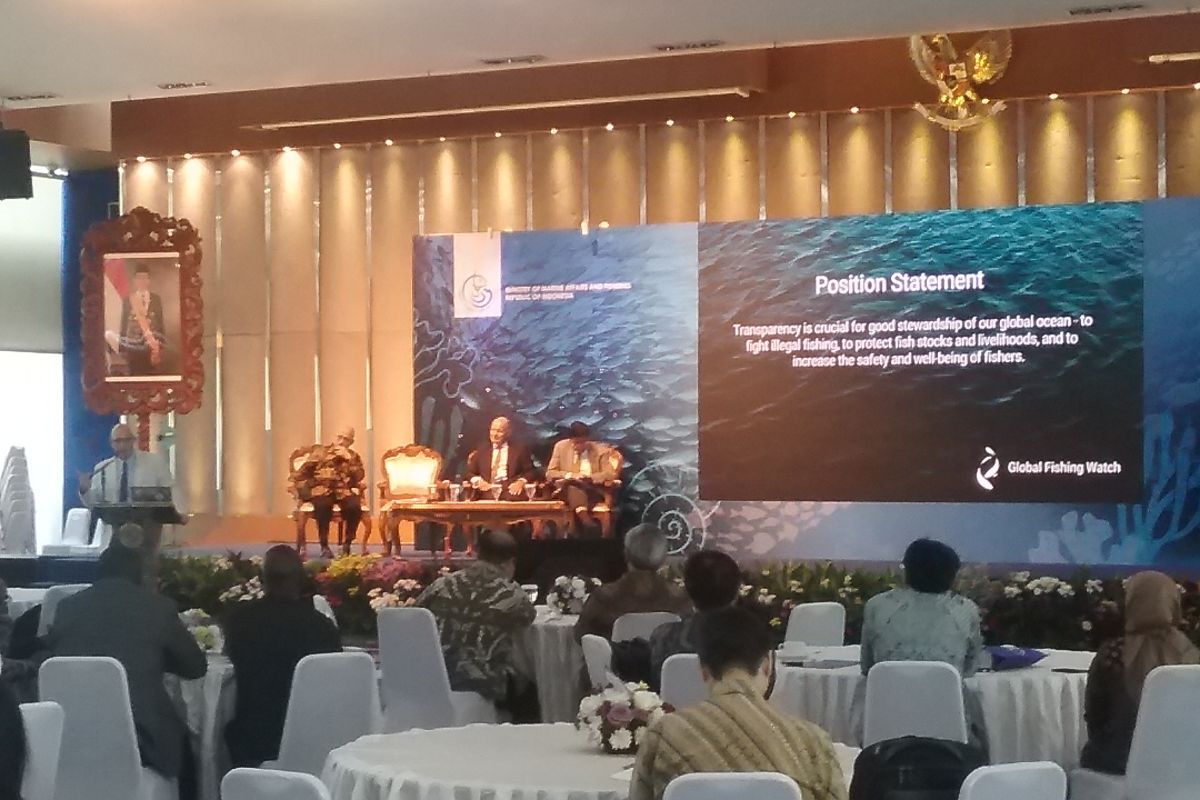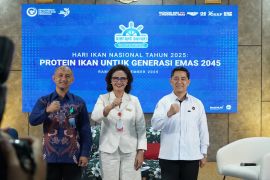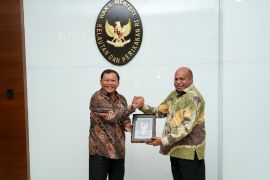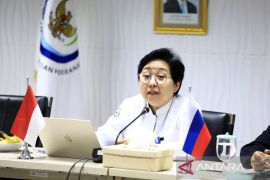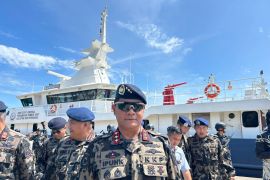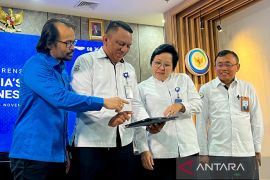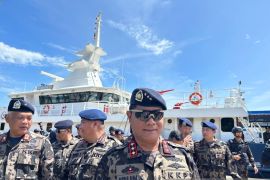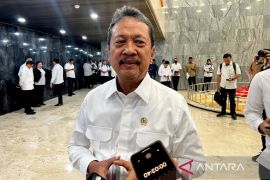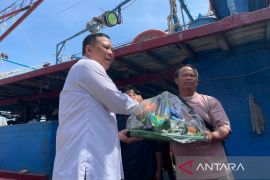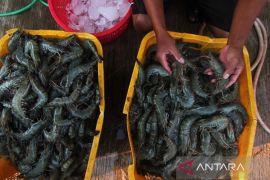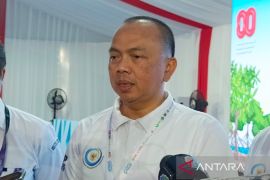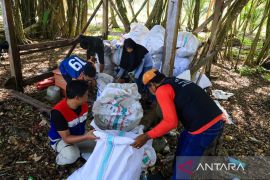"Form a permanent network in handling cases to intensify coordination and cooperation between countries and with existing international institutions," Widjaja stated here on Monday.
Widjaja expounded that streamlining the management of the world's oceans can be achieved through the formation of internationally accepted basic norms and optimizing the role of institutions or institutions of international organizations.
Related news: Indonesia has sunk 516 vessels since 2014 for fishing illegally
The Maritime and Fisheries Research and Human Resources Agency (BRSDM) along with Task Force 115 held a High-Level Panel on International Workshop themed "IUU Fishing and Organized Crimes in the Fishing Industry" in Jakarta on July 22-23, 2019.
The activity is a forum for world leaders, who remain committed to developing and supporting solutions for marine health and wealth in terms of policy, governance, technology, and finance.
The panel initiated the development of a series of Blue Papers (BP) that will summarize the latest in science, integrate modern thinking on innovative marine solutions, and focus on the implications of economic development and the social welfare of developing countries.
Special Task Force Coordinator for the 115th Task Force, Mas Achmad Santosa, among the speakers at the event, reminded that transnational fisheries crimes are quite serious in nature and clearly involve transnational elements.
Furthermore, transnational crimes are often committed in other criminal activities, such as money laundering, bribery, smuggling of drugs and arms, trafficking in persons, forced labor, tax crimes, and smuggling of goods.
Related news: Malaysian ship impounded in Malacca Straits for illegal fishing
Another speaker, Tony Long, the author of Global Fishing Watch's Blue Paper 15, reminded that transparency is a crucial element in combating illegal fishing, protecting fish stocks, and improving the welfare of fishermen.
The workshop is expected to produce recommendations to build a shared understanding of the current and potential economic and ecological conditions of the marine environment and produce policies, governance, technology, and investment solutions aimed at expediting the realization of a sustainable marine economy, Widjaja noted.
Related news: Indonesia calls for stronger regional cooperation to combat IUU fishing
Related news: Ministry impounds two Philippine-flagged fishing boats in Sulawesi Sea
Translator: M. Razi Rahman/Eliswan Azly
Editor: Sri Haryati
Copyright © ANTARA 2019
